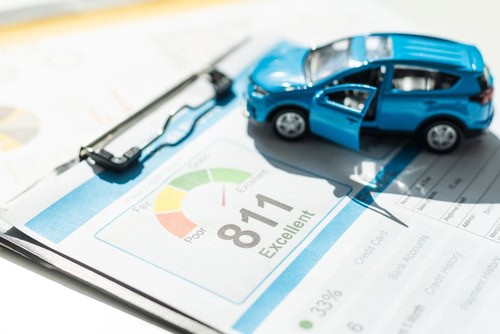How Credit Score Affects Car Insurance Costs: How to Fix It

When it comes to setting car insurance premiums, insurers look at various factors to determine how much you’ll pay. While driving record, vehicle type, and location are the most obvious considerations, your credit score also plays a significant role. But why do insurers care about your credit score? And how can you potentially lower your premiums by improving it? Here, we’ll dive into the connections between credit scores and car insurance rates and share actionable tips for keeping your premiums as low as possible.
Why Insurers Consider Credit Scores
Insurance companies use credit scores as part of a “credit-based insurance score,” which is a specialized version of a credit score tailored to predict insurance risk rather than loan risk. Here’s why they’re interested in this:
- Risk Assessment: Studies show a correlation between credit scores and the likelihood of filing a claim. Insurers believe people with lower credit scores are statistically more likely to file claims and incur costs.
- Financial Responsibility: Insurers see a higher credit score as an indication of responsibility, which they translate into lower risk. They argue that financially responsible people tend to be safer drivers.
- Loss Prediction: Historical data reveals that policyholders with lower credit scores, on average, have higher claim costs, which insurance companies try to offset by adjusting premiums.
How Your Credit Score Impacts Rates
On average, individuals with excellent credit scores receive lower premiums than those with average or poor scores. Here’s how insurers typically categorize and price premiums based on credit score brackets:
- Excellent Credit (720+): Usually associated with the lowest rates
- Good Credit (660-719): Slightly higher premiums but still competitive
- Fair Credit (580-659): Noticeable increase in premium rates
- Poor Credit (below 580): Often faces the highest premiums
The degree of impact varies by state, as some states have restrictions on how much insurers can weigh credit scores in determining premiums. For instance, California, Massachusetts, and Hawaii prohibit the use of credit-based insurance scores for auto insurance rates.
Tips for Lowering Car Insurance Premiums Based on Credit Improvements
Improving your credit score can have a positive impact on your car insurance rates over time. Here’s how to boost your score and potentially reduce premiums:
- Pay Bills on Time: Payment history makes up about 35% of your credit score. Consistently paying bills on time can help improve your score and make you a more appealing candidate for lower insurance premiums.
- Reduce Credit Card Balances: Aim to keep your credit utilization under 30% of your available credit limit. Lower utilization shows responsible credit management and can positively impact your score.
- Limit New Credit Applications: Applying for several new lines of credit within a short period can temporarily lower your score. Aim to space out credit applications to avoid negative impacts on your credit report.
- Check Your Credit Report Regularly: Mistakes can sometimes appear on your credit report, affecting your score. Monitoring your report allows you to dispute and remove errors, potentially giving your score a boost.
- Pay Down Existing Debt: Reducing the overall amount of debt you owe can increase your credit score. Consider consolidating or setting up a structured plan to pay off high-interest debt.
- Keep Old Accounts Open: Length of credit history also affects your score. Even if you’re no longer actively using a credit card, keeping it open and occasionally using it can positively impact your score.
Additional Tips to Lower Car Insurance Premiums
While improving your credit score is a valuable long-term approach, there are additional ways to save on car insurance in the meantime:
- Shop Around: Compare quotes from multiple insurers. Each insurer has different algorithms and weightings, so it’s worth exploring various options.
- Increase Your Deductible: Opting for a higher deductible usually results in lower premiums. Just make sure you can cover the deductible in case of an accident.
- Take Advantage of Discounts: Ask about discounts for safe driving, low mileage, bundling with other policies, or completing a defensive driving course.
- Consider Usage-Based Insurance: Some insurers offer policies that track your driving habits. If you’re a safe, low-mileage driver, this could lead to lower premiums.
Final Thoughts
While you may not have immediate control over your credit score, taking steps to improve it can pay off in the form of lower car insurance rates. By understanding why credit scores matter to insurers and implementing strategies to boost your credit, you can secure better rates and reduce your financial burden. Remember, improving your credit takes time, but the impact on your finances – including your insurance premiums – is well worth the effort.
